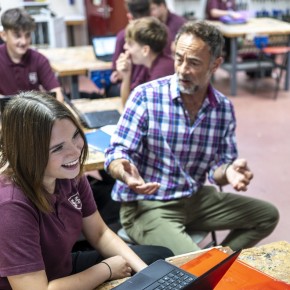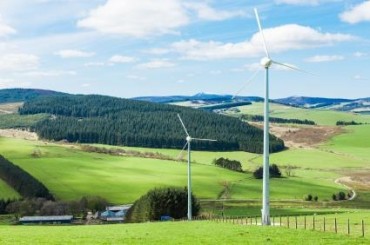Year 7
In Year 7 geography is all about making sure our students have a sound understanding of some basic geographical concepts and skills. This means being able to interpret and using Ordnance Survey maps, knowing some basic geography of the British Isles, learning how to use and atlas and beginning to explore some of the weird and wonderful Geography located in some of the far-flung places in the World. The units are based on changing spatial scales to encourage students to further develop their skills locally, nationally and globally. Students will visit Sheringham as part of the first topic in order to learn fieldwork skills in investigating the enquiry question “how green is Sheringham”.
Topics studied & links to Schemes of Work
- Geography and you – our local area
- Exploring Britain
- European Tour
- Fantastic Places
- Global challenges
Year 8
In Year 8 students build upon the skills and knowledge developed in Year 7. The focus of the first topic builds on an understanding of the some of the global challenges explored at the end of the previous year, with a key focus on the emerging superpower of China as part of the International Development topic which also deals with current affairs issues. A greater focus on human geography blends into the Population and Urbanisation topic, where students turn their attention to how and why cities grow globally particularly across Africa, the continent which will experience the fastest rate of urbanisation over the next decade. This naturally allows us to explore the physical geography of Africa further as part of the ecosystems topic before comparing this ecosystem to the extraordinary polar region of Antarctica. Students complete the year by exploring the topic of weather, which incorporates another chance for fieldwork opportunities and encourage the use of GIS software as part of a microclimates enquiry.
Topics studied & links to Schemes of Work
- International Development – China
- Population and Urbanisation
- Ecosystems – Savannah
- Ecosystems – Antarctica
- Weather, GIS and fieldwork
Year 9
In Year 9 students explore topics which are contributory towards the GCSE Geography course. In the Autumn Term students develop their understanding of local weather systems on a global scale developing their understanding and subsequent impacts of climate change. They will then explore the ways in which resources need to be managed in response to various human pressures, particularly energy supplies, water resources and the food trade.
Students then will learn more about natural hazards and specifically tectonic hazards by comparing places globally affected by earthquakes and tsunamis.
This continues into the Spring Term before moving onto Physical landscapes of the UK. The final part of the year is very much to do with physical geography and builds upon work covered in Years 7 & 8. This involves the study of Coastal and River landscapes. The focus then changes towards linking classroom experience to the real world. Towards the end of the year students are engaged in fieldwork in the local area and the learning of geographical skills and techniques.
Topics studied & links to Schemes of Work
- Climate Change
- Resource Management – Food, Water and Energy
- Natural hazards
- Tectonic hazards
- UK landscapes
- Coastal landscapes – including local fieldwork
- River landscapes
Year 10 (KS4 GCSE)
In Year 10 students begin their 2-year GCSE Geography course. In the Autumn term students discover The Living world as part of Living with the physical environment. This begins with Ecosystems focusing on Tropical rainforests and Hot deserts. This continues into the Spring term before moving onto Challenges in the human environment. The first part of this module focuses on Urban Challenges and Issues in Rio de Janeiro. This includes the urban world, urban changes in the UK (London) and urban sustainability. The final part of the year is very much to do with urban geography and carrying out fieldwork in the urban environment (Norwich) which will further help develop their geographical skills and techniques. Towards the end of the year students complete their second fieldwork, this time focussing on coastal management and processes in Overstrand.
Topics studied & links to Schemes of Work
- Ecosystems
- Tropical rainforests
- Hot deserts
- The urban world – Rio de Janeiro
- Urban change in the UK - London
- Urban fieldwork - Norwich
- Urban sustainability
- Coastal fieldwork - Overstrand
Year 11 (KS4 GCSE)
In Year 11 students complete their 2-year GCSE Geography course. In the Autumn term students begin to study the changing economic world with units focusing on global development, Nigeria and the UK. At the end of the term students discover about the devastating impacts of tropical storms to relate to the learning of natural hazards from Year 9. During this Spring term students receive the Pre-release paper. This is the Issue Evaluation section of the course which focuses on a particular strand from within the whole GCSE Geography curriculum. Students have nearly two months to study the topic materials prior to being examined in the summer. As exam preparation gains pace towards the Summer term students are engaged in revision and a review of geographical skills and techniques.
Topics studied & links to Schemes of Work
- Changing economic world
- The development gap
- Nigeria: a newly emerging economy
- The changing UK economy
- Weather hazards
- Issue Evaluation




 Our Geography curriculum is delivered by dedicated and experienced professionals.
Our Geography curriculum is delivered by dedicated and experienced professionals.



